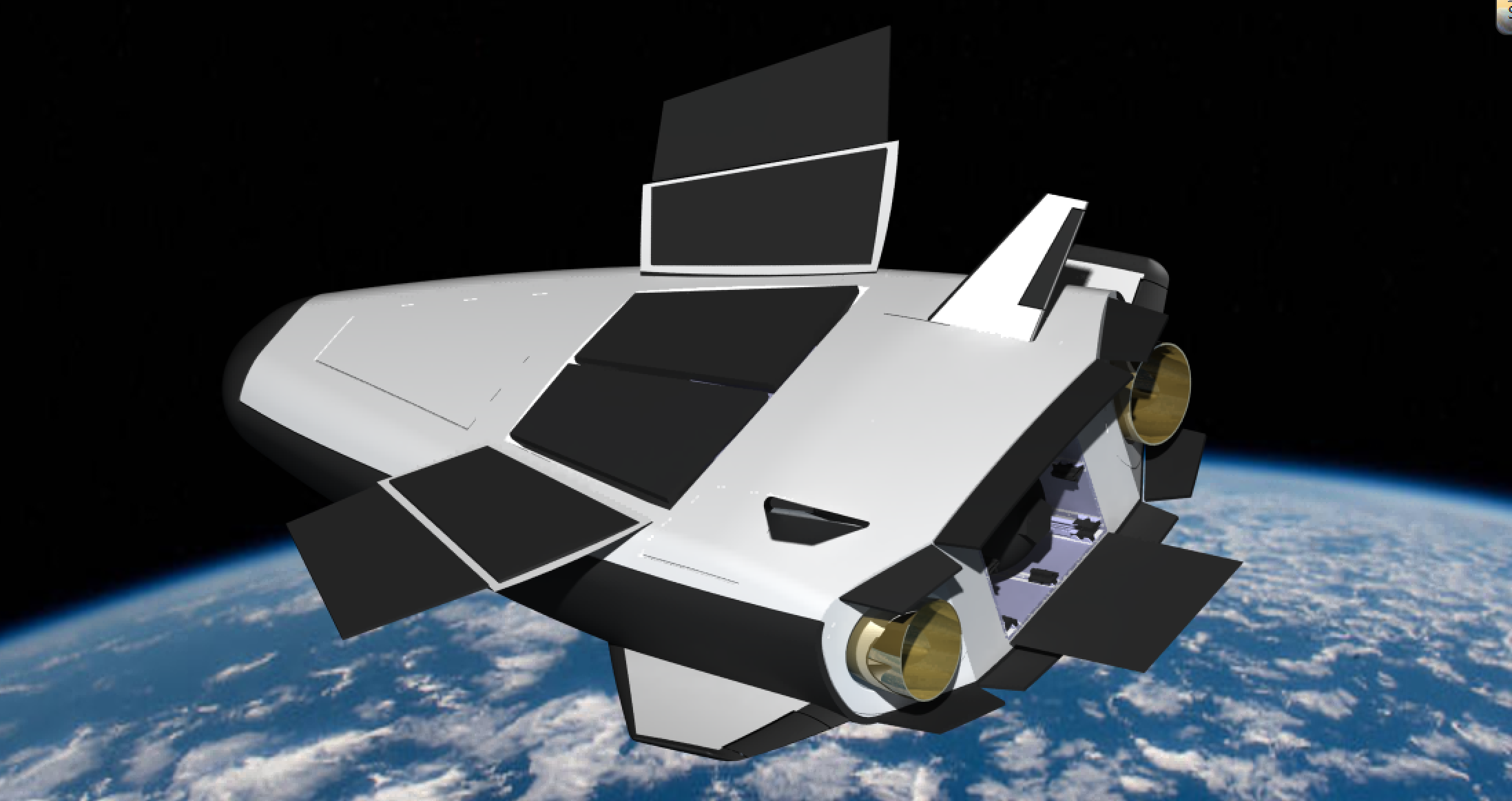 A prototype image of the BlackStar Orbital Technologies Corporation SpaceDrone.
A prototype image of the BlackStar Orbital Technologies Corporation SpaceDrone.
SpaceDrones in Sierra Vista? Yup, that’s going to be a thing.
BlackStar Orbital Technologies Corporation will build their new satellite manufacturing facility at the Sierra Vista Municipal Airport.
BlackStar Orbital’s Chief Executive Officer Christopher Jannette said the Florida-based company focuses on building reusable satellites.
"We’re discussing micro shuttle space drones, but what does that really mean though? It means we developed a reusable satellite that can launch like a traditional satellite, operate and then land like a space plane," said Jannette. "Our vehicle is only about 2 meters long and a meter and a half wide. It looks like a miniature space shuttle, operates like a miniature space shuttle, but ultimately what it provides to the customers is they have a new platform in which they can operate spacecraft. Think about single use straws, you just use them once and you throw them away. We’re basically doing that in space right now and we really don’t need to."
Chief Technology Officer Kit Carson said BlackStar Orbital will be building and testing the first generation of its SpaceDrones at the Sierra Vista Municipal Airport.
"Sierra Vista is so closely tied to Fort Huachuca and the mission there, as well as the pilots in training — you know all of that human capital — is directly applicable to what we’re doing and part of the reason we chose it and that’s exactly why we’re moving there,” said Carson.
Sierra Vista Tourism and Economic Development Director Tony Boone said the facility has huge economic potential.
“You know, conservatively, if this goes the way we think it goes and it’s just the 50 employees, it will be well over $100 million in impact,” said Boone.
Boone said BlackStar Orbital will be leasing the land for their facility from the City of Sierra Vista.
"We will maintain ownership, and that's true of all the land at the Municipal Airport, not just specifically anything to do with BlackStar," said Boone. "We'll do a long-term lease ... We'll also set up a lease for access to the apron, the concrete apron that's already currently done there."
The next step for the city is to apply for a Spaceport License from the Federal Aviation Administration (FAA). But before that happens, the city needs to hire a consultant for a feasibility study for that license. Boone said the Sierra Vista City Council approved the funding for that feasibility study in last year's budget.
"We'll hire a consultant to kinda go through things like risk, safety, impacts to Fort Huachuca — which is critically important — and environmental," Boone said. "And what they're going to do is kinda a go-no go criteria ... Does this work or does it not? And really, that will come back and provide an analysis that we can take to city council to say 'hey look, the consultant has gone through all the factors that will feed into a license. Based on the initial read, we can meet all the requirements.'"
If approved by council, Boone said the city can apply to get a Spaceport License, of which, there are only two other locations in the U.S. that are licensed by the FAA for re-entry according to the FAA website.
"There's 17 launch licenses across the country," said Boone. "There's two licenses for re-entry. The first 17 are rockets going vertical or horizontal, depending on which method ... But at the end of the day, there's actually only two re-entry: one is in Huntsville, Alabama ... And then the runway that the shuttle used to land in Cape Canaveral — I think it's 14,000 ft — it was recently in the last several months commercialized. So, if we go through this process, we would join one of three."
Construction on the BlackStar Orbital $7.1 million facility should be complete by mid 2026.
"Those are in the form of incentivizations and tax credits," said Jannette, referring to the $7.1 million investment. "One thing that we're very proud of is our ability to raise funding through private means ...We're very proud to have met both the Governor's office and the Arizona Commerce Authority during the run up negotiations to this. But ultimately, this is about a return on value for the Arizona taxpayer, that's why we've taken no actual liquid investment in this process."
Jannette said they plan to manufacture 15 space drones per year out of the new facility, and they are looking to hire 50 personnel ranging from technicians, engineers, welders and general operations.

By submitting your comments, you hereby give AZPM the right to post your comments and potentially use them in any other form of media operated by this institution.